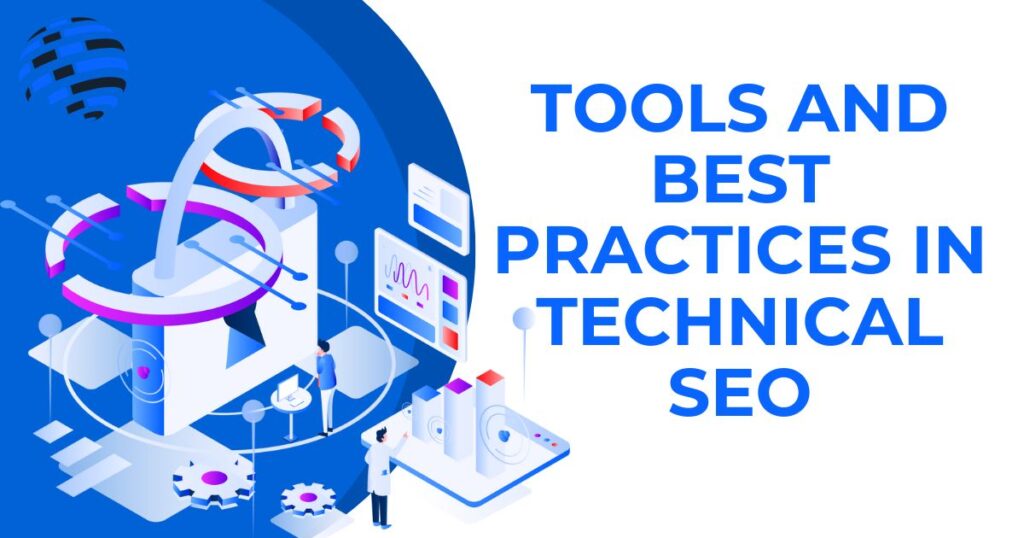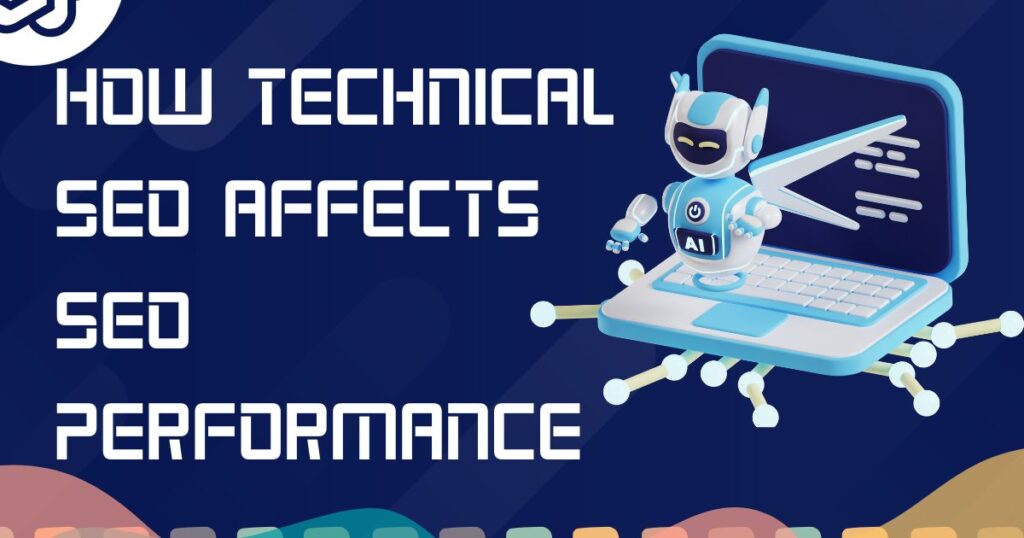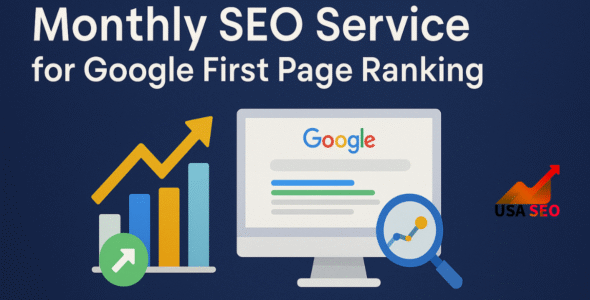Technical SEO is critical to a website’s success because it guarantees that search engines can crawl, index, and rank it efficiently. It focuses on a website’s structural components, such as page speed, mobile optimization, secure HTTPS connections, and site architecture, all of which influence search engine visibility and user experience.
A well-optimized site not only ranks higher in search results but also delivers a consistent experience for users, lowering bounce rates and increasing engagement. Even high-quality material may be difficult to find without strong technical SEO. Addressing technical difficulties may help a website rank better, get more organic traffic, and retain visitors, resulting in long-term online success.
Introduction
In today’s competitive digital market, search engine optimization (SEO) is critical for delivering organic traffic to websites. While many people concentrate on content quality and keyword optimization, technical SEO is just as vital, since it provides the framework for a site to perform effectively in search engines. Technical SEO includes enhancing a site’s infrastructure, such as speed, security, mobile compatibility, and crawlability, to ensure it fulfills the needs of search engines such as Google.
Even the finest content may struggle to reach its intended audience without excellent technical SEO since search engines prefer websites that provide a seamless, user-friendly experience. This article examines the significance of technical SEO, its important components, and how it affects website success, providing light on why it is an essential component of any efficient SEO strategy.

What is technical SEO?
Technical SEO is the process of optimizing a website’s architecture and administration to improve search engine visibility and efficiency. In contrast to on-page SEO, which focuses on content and keywords, technical SEO tackles a website’s structural features to guarantee that search engines can crawl, index, and interpret its pages.
Site design, page speed, mobile friendliness, secure HTTPS connections, and structured data markup are all technical SEO factors. These improvements make it simpler for search engine bots to access and comprehend the website’s information, resulting in higher ranks. Technical SEO also improves the user experience by guaranteeing quicker page loads, seamless navigation, and device compatibility, resulting in lower bounce rates and more engagement.
Technological SEO establishes a strong technological basis, allowing content to be readily discovered and rated, making it a vital component of any successful SEO strategy.
Why Technical SEO Is Essential to the Success of Websites
Technical SEO is critical to website success because it lays the groundwork for search engine exposure and a great user experience. It allows search engines to simply crawl and index the site, increasing its chances of appearing in search results. Key technical features such as page speed, mobile friendliness, and secure HTTPS connections have a direct impact on how search engines rank a website while also improving the user experience.
A site that loads fast, is simple to browse on mobile devices and is secure engages visitors, lowering bounce rates and increasing time spent on the site. Technical SEO also assists in the management of problems such as duplicate content, broken links, and bad site design, all of which may have a detrimental influence on rankings and user experience. Google and other search engines emphasize websites that provide value and a smooth user experience, rewarding well-optimized sites with increased prominence.
Even the finest content may fail to reach its intended audience if it has a solid technological base. In today’s competitive digital market, technical SEO is critical to ensuring that a website not only ranks high but also keeps visitors, resulting in long-term growth and online success.

Tools and Best Practices in Technical SEO
Tools for Technical SEO:
- Google Search Console: This application keeps track of how well a given site performs in the search results for Google. It detects indexing errors, monitors keyword ranks, and gives information about user interaction, helping site owners rectify technical issues and increase search exposure.
- Google Page Speed Insights: This tool assesses website load performance for both desktop and mobile devices, making suggestions to improve loading times. It evaluates Core Web Vitals, which are critical for evaluating and optimizing user experience and search performance.
- Screaming Frog SEO Spider Screaming: Frog is a web crawler that detects technical faults such as broken links, duplicate content, and missing information. It’s really useful for doing complete site audits and identifying issues that may harm SEO performance.
- GTmetrix: GTmetrix gives a full overview of page speed and performance indicators, as well as practical tips for improving load times. This tool is useful for optimizing graphics, scripts, and other aspects that impact performance.
Best Practices in Technical SEO:
- Conduct regular site: Audits to discover and resolve technical problems that may affect SEO, such as broken links, crawl errors, and page speed concerns:
- Optimize for Mobile: Use responsive design to guarantee that the website works properly on all devices. Google’s mobile-first indexing implies that mobile performance influences rankings, thus mobile optimization is critical.
- Use Structured Data Markup: Adding schema markup helps search engines better comprehend your material and allows for rich snippets, making search results more useful and appealing.
- Improve Page Speed: Between compressing pictures, minifying code, and using caching to minimize load times. Faster pages boost not just rankings but also the user experience.
- Make sure HTTPS is secure: HTTPS is a criterion for ranking that safeguards user information. Installing an SSL certificate to move from HTTP to HTTPS increases user trust and may enhance rankings.
Key Features of Technical SEO
The primary goal of technical SEO is to optimize a website’s infrastructure so that it operates effectively for both search engines and users. These features include establishing an XML sitemap to assist search engine crawlers through the site’s key pages and ensure they are correctly indexed. Another key component is the robots.txt file, which advises bots on which sites to crawl or avoid, allowing crawl budgets to be managed more efficiently.
Structured data markup, or schema, adds context to search engines, improving how material appears in search results with rich snippets that increase click-through rates. Page speed optimization is also important, since speedier sites provide a better user experience and rank higher; this may be accomplished by compressing pictures, caching, and decreasing code.
Finally, mobile-friendliness is critical in today’s mobile-first environment, with responsive design enabling sites to adjust to different screen sizes, which is rewarded by search engines and favored by consumers. Together, these technical SEO factors provide a foundation that improves site exposure and usability, all of which are crucial for ranking success.

How Technical SEO Affects SEO Performance
Technical SEO directly influences SEO performance by enhancing a website’s structure and backend to increase search engine visibility and user experience. Effective technical SEO guarantees that search engines can effectively crawl and index sites, resulting in more material appearing in search results.
Ranking criteria that lead to greater placement in search results include quick website load times, mobile optimization, and secure HTTPS connections. Additionally, technical SEO decreases problems like broken links, duplicate content, and poor navigation, all of which may have a negative impact on user engagement.
A technically optimized website provides a consistent experience for visitors, lowering bounce rates and increasing the possibility that users will remain longer and engage with the content. This user behavior is often rewarded by search engines, which prefer sites that provide value and a pleasant experience. Overall, technical SEO is vital for increasing a website’s ranking potential and ensuring that high-quality content reaches its intended audience.
Common technical SEO challenges and solutions.
- Duplicate Content: Duplicate content may confuse search engines by dividing ranking potential across related sites. To remedy this, use canonical tags to identify a page’s preferred version, consolidate duplicate pages, or generate unique content to avoid content duplication.
- Slow Page Speed: Slow page load times may result in high bounce rates and a bad user experience, affecting rankings. Compressing pictures, reducing CSS and JavaScript, and using a Content Delivery Network (CDN) may help decrease server response times and enhance performance.
- Broken links: Break down user experience and make it difficult for search engines to scan a site. Audit your website on a regular basis for broken links and repair or eliminate them for smooth navigation and improved search engine crawling.
- Poor Mobile Optimization: With Google’s mobile-first indexing, sites that are not optimized for mobile may suffer in ranks. Create responsive design, optimize for touch navigation, and test across devices to create a consistent mobile experience, which may improve rankings and user engagement.
- Crawl problems: Hinder search engines from reaching certain sites, which limits their ability to rank. Solutions include checking Google Search Console for issues, repairing broken sites, and changing the robots.txt file to enable search engines to access critical material.

Conclusion
Technical SEO is a critical component in creating a great online presence. It offers the foundation for search engines to efficiently crawl, index, and rank a website, ensuring that it is accessible, quick, safe, and user-friendly. As search engines continue to emphasize user experience, technical SEO becomes more important than ever. Whether you operate a small company website or a major e-commerce platform, investing in technical SEO establishes the foundation for effective search engine performance and user engagement, making it a critical component of contemporary digital marketing.
 My Account
My Account 


